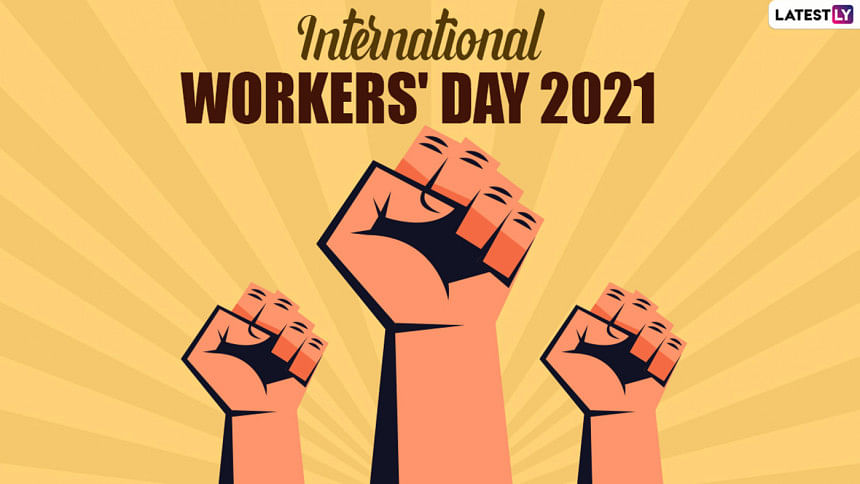Mainstreaming human rights in business to protect workers’ rights

A study led by the Centre for Policy Dialogue (CPD) revealed that more than 3,50,000 workers in the RMG sector have lost their jobs during Covid-19 pandemic while most of the workers have been laid off without proper compensation. A staggering official record is of 56372 workers being laid off. The report also finds that the high rate of retrenchment was occurred in small factories amounting to over 10% of total work force.
According to Bangladesh Garment Manufacturers and Exporters Association (BGMEA), at least 70,000 workers have been terminated in garment factories since April 2020. As per Bangladesh Garment and Industrial Workers Federation, 150,000 workers have already lost their jobs and termination occurs every day. The Penn State Center for Global Workers' Rights has found that more than a million Bangladeshi apparel workers got laid off while 72.4% of them were sent home without pay.
It is noted that the salaries of workers who toiled in the industry for many years were reduced significantly amid pandemic. The study report titled 'The Weakest Link in the Global Supply Chain: How the Pandemic is Affecting Bangladesh's Garment Workers' finds that workers suffered 35% pay cut during the pandemic which caused debilitating impacts on their right to food, health, housing, and overall life and living standards of the workers.
The above statistics and information indicate the devastating impact of the ongoing pandemic on the lives and livelihoods of workers. However, the actual number of laid off and terminated workers, however staggering, is much bigger than officially reported. The discrepancy in data indicates the vulnerability and exploitation of workers while leaving the voices of a large number of workers lost and unheard.
Right of laid-off workers to compensation
The Labour Act 2006 guarantees compensation for the laid off workers. Section 16 of the Labour Act states that the amount of compensation shall be equal to half of the total amount of the basic wages and dearness allowance and ad-hoc or interim wages, if any, and equal to the full amount of housing allowance. However, in order to avail compensation, the worker has to to work continuously for one year under the employer and such compensation shall be paid for 45 days unless there is an agreement to the contrary between the worker and the employer. Though the period of lay-off can be extended for further 15 (fifteen) days or more, the compensation for such extended period shall be equal to one-fourth of the total of the basic wages and dearness allowance, and ad-hoc or interim pay, if any, and the full amount of housing allowance, if any. While making such extension of lay-off after the first forty-five days as aforesaid, the employer may, instead of laying- off, retrench such worker.
The labour Act allows the employer to terminate a worker under the ground of retrenchment by giving one month's notice in writing indicating the reason of retrenchment. However, the requirement of giving notice can be waived by paying wages in lieu of such notice. It is noted that though the Act requires to indicate the reason of retrenchment, such requirement is mostly dependent on the subjective satisfaction of the employer which entertains no say of the workers against unjust as well as discriminatory termination. In addition, the optional nature of the requirement of giving notice leaves room for instant and unjustified termination.
It is mentionable that as per the aforementioned CPD study, majority of factories did not follow the lay-off and termination rules while terminating the workers during the pandemic. The study reveals that only 3.6% complied with the compensation principle in case of laid off workers while non-compliance as the norm, was rampant among the employers. In addition, the research report of the Transparency International Bangladesh (TIB) reveals that due to the rigid requirement of working continuously for one year for getting compensation for lay off under the Labour Act, 20% of the laid off workers are being left without any kind of compensation.
In case of reemployment upon retrenchment, the Labour Act directs to provide preference to those retrenched workers. However, the CPD study finds that the provision of the Labour Act regarding retrenchment has not been followed while a good number of establishments recruited their retrenched workers at a lower wage rate and on temporary basis. In addition to unjustified lay-off and retrenchment, workers are also facing discrimination and harassment in receiving wages and other healthcare as well as safety benefits. The remedies against such unjustified termination and discriminatory practices remain a far cry especially during the ongoing pandemic.
Legal responses to workers' rights and the Covid-19 pandemic
It is worthy to note that ILO Declaration on Fundamental Principles and Rights at Work 1998 identifies four core labour rights that include freedom of association and the effective recognition of the right to collective bargaining, the elimination of forced or compulsory labour, the abolition of child labour and the elimination of discrimination in respect of employment and occupation. The Constitution of Bangladesh envisages an array of welfare measures for and rights of the workers including just wages, reasonable rest, recreation and leisure (Article 15), rights of forming union (Article 38), protection from all forms of forced labour as of right (Article 34) and protection from all forms of exploitation (Article 14). It is mentionable that Bangladesh has ratified seven of the eight core conventions and several other conventions of the ILO. Despite such constitutional and international commitment and obligations, human rights of the workers are being constantly violated.
The Labour Act 2006, being the core enabling law, attempts to provide a detailed framework to guarantee the entitlements of workers. However, the Act has failed to integrate human rights perspectives comprehensively within its approach. The Act provides, in many cases, unfettered power to the employers while making the workers immensely vulnerable and dependent. The monitoring mechanism under the Act is not clearly demarcated which makes the responsible stakeholders unaccountable. Trade unions fail to function effectively and to make things worse, workers face challenges to freely form or join independent unions. The Labour Act also fails to address the concerns and needs of informal workers who suffers most during the pandemic. The most important fact is that implementation of the law undergoes little to no enforcement. Though the Act in its latest amendments prohibits child labour, however, the number of child workers are alarmingly increasing due to the Covid-19 induced economic crisis and nationwide closure of educational institutions including schools.
It is undeniable that Covid-19 pandemic has caused unprecedented challenges for the workers' rights and entitlements. The uncoordinated management to tackle pandemic along with poor enforcement of the laws, policies and strategies exacerbates the vulnerabilities of the workers making them victims of exploitation and discrimination. The pandemic not only portrays the sufferings of workers but also indicates the fragility of our governance system which fails to uphold the human rights of the workers. Covid-19 has also unveiled the fragility of our justice system because perpetrators of human rights violations enjoy impunity. It is evident from the fact that perpetrators of major incidents of labour law violations including Rana Plaza collapse are enjoying immunity from punishment.
Human Rights based pandemic response plan
Considering the aforesaid discussion, a human rights-based assessment regarding the impact of the ongoing pandemic on worker's rights needs to be undertaken. Such an assessment will unveil the necessity of integrating human rights considerations into the relevant laws and policies.
In this regard, the UN Guiding Principles for Business and Human Rights (UNGPs), while advocating 'Protect, Respect and Remedy' framework for transnational corporations and other business enterprises in terms of adopting a human rights-based approach, provides comprehensive guidelines to integrate human rights perspectives into business policies and practices. In addition to recognising the responsibilities of the States under international human rights law, the UNGPs imposes specific responsibilities on the business enterprises. The UNGPs recognises the fundamental right of individuals to access effective remedy when their rights get adversely impacted by business activities. The UNGPs also requires States to establish effective grievance mechanisms including administrative and judicial means to guarantee remedies for business-related human rights abuses. It is also noted that such grievance mechanisms should be accessible, equitable, and rights-compatible. It will not be out of place to note that the overburdened judicial system of Bangladesh fails to ensure access to remedy of the workers. Awareness and proper understanding of these mechanisms is important to ensure access to remedy.
While preventing and mitigating adverse human rights impact, business enterprises should adopt the parameters for human rights due diligence defined in UNGPs. In order to assess whether the human rights policies are being implemented optimally, business enterprises are required to track, and review their performance and modify their practices accordingly. It is noted that such monitoring mechanism should be incorporated into our labour laws and other business laws, in order to review the activities of the industries and corporations and to prevent the adverse impacts of business practices as well.
The most significant feature of UNGPs is that they not only identify the needs of the rights holders but also categorise the responsibilities of the duty bearers. In the present case, workers are the rights holders while suppliers, brands and the government are the duty bearers to guarantee rights and welfare measures for the workers. While making this human rights framework a reality, workers should be informed, made aware and empowered about their entitlements in order to hold the employers, brands and the government accountable in the context of Bangladesh.
As we are observing International Workers' Day during the pandemic, it is the demand of the hour to mainstream and implement UNGPs in order to formulate laws, policies, and action plans to tackle the impact of the pandemic while guaranteeing the human rights, justice, and dignity for the workers.
The writer is an Assistant Professor of Law, University of Dhaka.

 For all latest news, follow The Daily Star's Google News channel.
For all latest news, follow The Daily Star's Google News channel. 



Comments